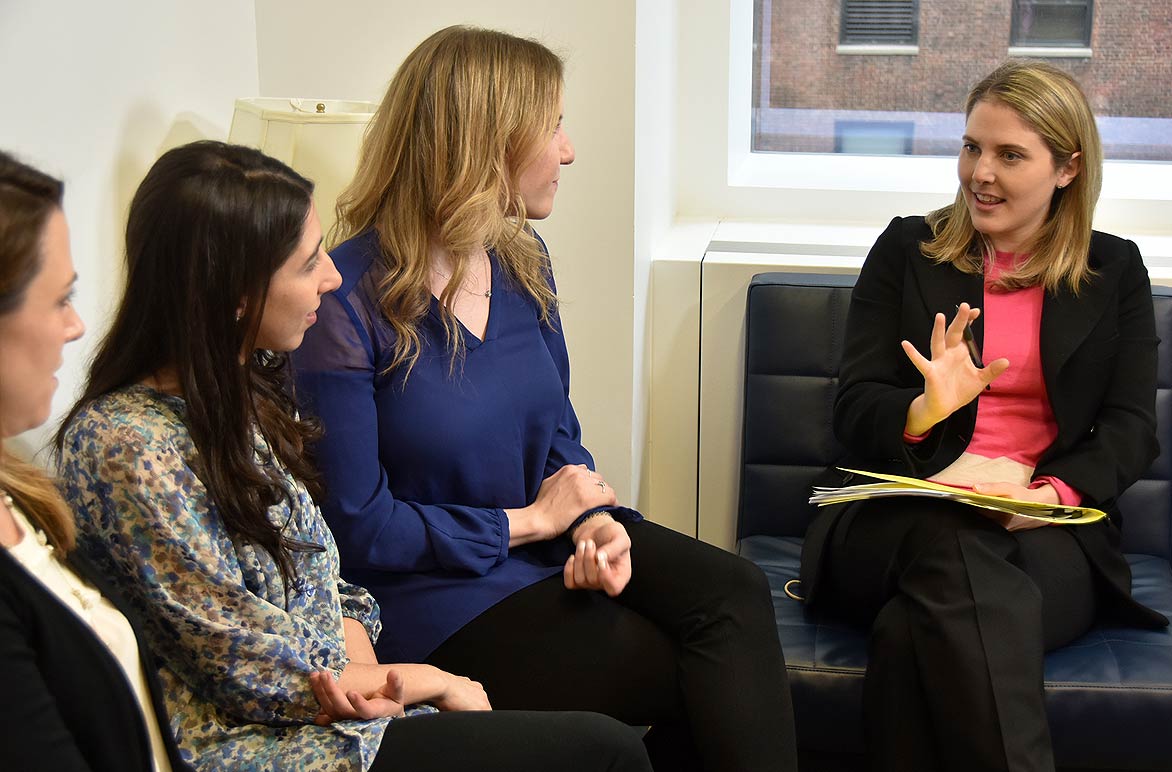The training and dissemination of evidence-based treatments is central to CUCARD's mission; our clinicians are also committed to providing a positive and high-quality learning experience for volunteers, Master's-level clinicians (through our externship program), and postdoctoral fellows.
The training program includes three major components:
- Clinical Experience
Trainees will learn about the implementation of cognitive behavioral therapy in both individual and group formats, as well as through other specialized experiences including observation of senior staff, engagement in didactic training, role plays, participating in in vivo exposures outside the clinic, and assisting with school observation visits. In addition to their individual case requirements, trainees co-lead or lead at least one group during their time at the clinic. Trainees also participate in weekly group and individual supervision, giving the opportunity for intensive training on their own cases as well as exposure to challenges that senior clinicians encounter in implementing and adapting evidence-based practice to meet the needs of their patients.
- Didactic Experience
CUCARD enhances training through ongoing seminars and supervision sessions focusing on a variety of topics, including evidence-based treatment for anxiety and related disorders, parent-child interaction therapy, ethics, special considerations in working with adolescents, and a variety of other theoretical and practical topics focusing on the development of young professionals. CUCARD also features regular guest speakers addressing issues outside the core experiences of the clinicians; recent guest speakers have spoken on issues ranging from insomnia in teenagers to helping bereaved children.
- Research Experience
Research and the conduct of empirically-supported treatment is a core value of the clinic. Students will be encouraged to prepare a case study for publication as part of their responsibilities in the clinic. Additional writing opportunities and research involvement may also be available for interested trainees.
Applying for a Training Experience at CUCARD
For interested externs—CUCARD participates in the externship match program run by the Psychology Directors of New York State and the New York and New Jersey Directors of Training. Interested individuals from the New York/New Jersey area should consult their training directors for more information. Additionally, you may wish to consult our wiki.
Postdoctoral Fellow positions are limited and highly competitive. Announcements for available positions are generally made through the listservs of the Association for Behavioral and Cognitive Therapies and Division 53 of the American Psychological Association. For more information about position availability and how to apply, please contact Dr. Jiayi Lin-Imada at jkl2187@cumc.columbia.edu.
Nonclinical Volunteers
CUCARD frequently offers volunteer positions for individuals who are in the process of achieving a Bachelor's or Master's level degree. Volunteers are not eligible to provide direct clinical services, but participate in many of the core training and research experiences. For more information about volunteer position availability, please call 212-342-3800 for more information.
Professional Development
In addition to working with trainees, CUCARD also works with mental health practitioners from a variety of backgrounds who want to learn more about CBT and implementing evidence-based methods in their own practices. Staff members are available for in-service talks and one-on-one or group supervision. If you are a practicing psychiatrist, psychologist, or social worker who is interested in specialized training, please contact us at 212-342-3800 for more information about available programs.



